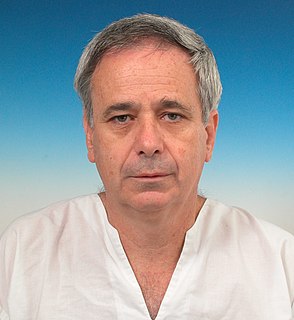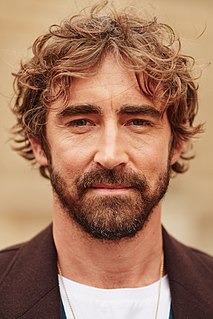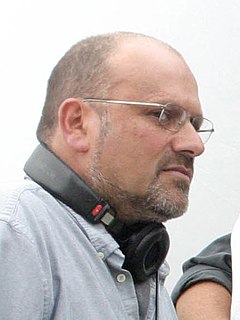A Quote by Peter Beinart
I've heard people in the Middle East tell me that the most inspiring thing for them as people struggling against dictatorship in the Middle East is the memory of the civil rights movement.
Related Quotes
Unless this [Barack Obama] American administration is willing to diverge from the conventional American policy in the Middle East by changing its basic attitudes on crucial questions, foremost of them Palestine, and support genuinely the rights of people for independence, sovereignty and identity across the board, the only "resolve" one would hope from the USA is to stay out of the Middle East for a while.
So much of what we see and hear about the Middle East focuses on what we call politics, which is essentially ideology. But when it comes to the Middle East, and especially the Arab world, simply depicting people as human beings is the most political thing you can do. And that's why I chose to write about food: food is inherently political, but it's also an essential part of people's real lives. It's where the public and private spheres connect.
It was important for me to show that Beirut and Lebanon were once the pearl of the Middle East. Beirut was once called the Paris of the Middle East and to have that feeling of a destroyed place that once was beautiful and glamorous and visually impressive was important. I think it's even sadder to get the feeling that this country, and indeed the whole Middle East, could have been a major force in the world if people would get together and forget about destruction, death and wars. But unfortunately, it's not happening yet.
You look at the Koran or the Bible, they all tell the same stories. You see them as the stories of the Middle East. The stories reflect who these people were in the Middle East, and this is where Western culture came from. All our literature is basically influenced by these great myths. So I'm fascinated by it. You could almost say I'm obsessed with it. But if you're asking about the effect of religion on my life - almost everything I do is opposed to the practice of religion.
There is a real need to construct a different Middle East. The Middle East must change because the world has changed. And instead of oppositional armies that are fighting usually one against another, now we have a net of terrorists that are trying to destroy everything. They are not two; they are hundreds.
There's kind of a hidden point which isn't being brought out, and that is that it is inconceivable that the U.S. would permit democracy in the Middle East, and for a very simple reason. Just take a look at polls of Arab public opinion. They exist. You can't find them in the press, but they exist from prestigious polling agencies. Released by major institutions. And what they show is that if there was democracy in the Middle East, the entire U.S. program for domination of the Middle East would be down the tube.
Israel's democracy is the bedrock on which our relationship stands. It's a shining example for people around the world who are on the frontline of the struggle for democracy in their own lands. Our relationship is also based on our common interest in a more stable and peaceful Middle East, a Middle East that will finally accord Israel the recognition and acceptance that its people have yearned for so long and have been too long denied, a Middle East that will know greater democracy for all its peoples.
Sadly, a U.S. invasion of Iraq 'would threaten the whole stability of the Middle East' - or so Amr Moussa, secretary-general of the Arab League, told the BBC on Tuesday. Amr's talking points are so Sept. 10: It's supposed to destabilize the Middle East. The stability of the Middle East is unique in the non-democratic world and it's the lack of change in Iraq, Iran, Saudi Arabia, Syria, Egypt that's turned them into a fetid swamp of terrorist bottom-feeders.



































